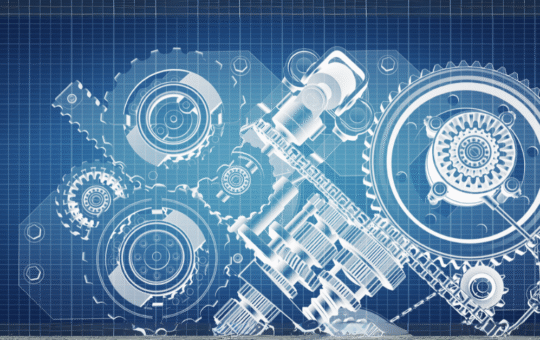
Level 4 Diploma in Advanced Fluid Power Systems and Automation
- Acquire advanced technical knowledge in fluid power systems and automation.
- Learn to design, analyze, and maintain hydraulic and pneumatic systems.
- Gain proficiency in automation technologies and control systems.
- Enhance problem-solving and critical-thinking skills for engineering challenges.
- Achieve a recognized qualification to boost your career in fluid power and automation.
- Understand the principles and applications of fluid power systems.
- Design and maintain advanced hydraulic and pneumatic systems.
- Integrate automation and control systems into fluid power applications.
- Analyze system performance and optimize for efficiency and reliability.
- Apply safety and regulatory standards in fluid power and automation environments.
- Principles of Fluid Power Systems
- Fundamentals of hydraulics and pneumatics.
- Properties of fluids and their applications in engineering systems.
- Hydraulic Systems Design and Maintenance
- Design techniques for hydraulic circuits.
- Troubleshooting and maintenance of hydraulic components.
- Pneumatic Systems and Controls
- Principles of pneumatic systems and applications.
- Integration of pneumatic components in automation processes.
- Automation and Control Systems
- Fundamentals of PLCs (Programmable Logic Controllers) and control systems.
- Application of control systems in fluid power operations.
- Energy Efficiency and Sustainability
- Strategies for optimizing energy use in fluid power systems.
- Sustainability considerations in system design and operation.
- Safety and Compliance
- Regulatory standards and safety practices in fluid power and automation.
- Risk assessment and mitigation techniques.
- Case Studies and Industry Applications
- Real-world examples of fluid power systems and automation.
- Practical projects to solve industry-relevant challenges.
- Hydraulic Engineer
- Automation Engineer
- Pneumatic Systems Technician
- Maintenance Engineer
- Process Control Engineer
- Level 5 qualifications in Automation or Fluid Power Engineering.
- Bachelor’s degree programs in Mechanical or Automation Engineering.
- Industry-Relevant Curriculum: Aligned with current trends and demands in fluid power and automation.
- Hands-On Training: Practical sessions to ensure job readiness.
- Expert Faculty: Learn from industry professionals and experienced instructors.
- Flexible Learning Modes: Choose from in-person, part-time, or online learning.
- Globally Recognized Qualification: Enhance your career prospects with an accredited diploma.
Study Units
- Principles of Fluid Power Systems
- Fundamentals of hydraulics and pneumatics.
- Properties of fluids and their applications in engineering systems.
- Hydraulic Systems Design and Maintenance
- Design techniques for hydraulic circuits.
- Troubleshooting and maintenance of hydraulic components.
- Pneumatic Systems and Controls
- Principles of pneumatic systems and applications.
- Integration of pneumatic components in automation processes.
- Automation and Control Systems
- Fundamentals of PLCs (Programmable Logic Controllers) and control systems.
- Application of control systems in fluid power operations.
- Energy Efficiency and Sustainability
- Strategies for optimizing energy use in fluid power systems.
- Sustainability considerations in system design and operation.
- Safety and Compliance
- Regulatory standards and safety practices in fluid power and automation.
- Risk assessment and mitigation techniques.
- Case Studies and Industry Applications
- Real-world examples of fluid power systems and automation.
- Practical projects to solve industry-relevant challenges.
Upon completing this diploma, learners will:
- Understand the principles and applications of fluid power systems.
- Design and maintain advanced hydraulic and pneumatic systems.
- Integrate automation and control systems into fluid power applications.
- Analyze system performance and optimize for efficiency and reliability.
- Apply safety and regulatory standards in fluid power and automation environments.
This course is designed for:
Mechanical Engineers and Technicians
Individuals seeking to advance their expertise in fluid power and automation, particularly in hydraulic, pneumatic, and control systems within engineering applications.
Automation and Control Systems Engineers
Professionals focused on automation technologies and control systems who wish to gain specialized knowledge in integrating these systems with fluid power applications.
Hydraulic and Pneumatic Systems Specialists
Engineers and technicians already working with hydraulic and pneumatic systems looking to deepen their skills in system design, analysis, and maintenance.
Maintenance Engineers
Professionals responsible for maintaining fluid power and automation systems who want to enhance their troubleshooting and optimization skills to improve system reliability.
Robotics and Aerospace Engineers
Individuals working in industries such as robotics, automotive, and aerospace engineering who need advanced understanding of fluid power systems and their automation.
Process Control Engineers
Engineers working in process industries who need to optimize and automate fluid power systems for increased efficiency and safety.
Career Changers
Professionals from related fields (such as mechanical or electrical engineering) looking to specialize in fluid power and automation systems.
Those Preparing for Advanced Studies
Learners intending to pursue Level 5 certifications or further academic qualifications in fluid power, automation, or mechanical engineering.
Our assessment process is designed to ensure every learner achieves the required level of knowledge, skills, and understanding outlined in each course unit.
Purpose of Assessment
Assessment helps measure how well a learner has met the learning outcomes. It ensures consistency, quality, and fairness across all learners.
What Learners Need to Do
Learners must provide clear evidence that shows they have met all the learning outcomes and assessment criteria for each unit. This evidence can take different forms depending on the course and type of learning.
Types of Acceptable Evidence
Assignments, reports, or projects
Worksheets or written tasks
Portfolios of practical work
Answers to oral or written questions
Test or exam papers
Understanding the Structure
Learning outcomes explain what learners should know, understand, or be able to do.
Assessment criteria set the standard learners must meet to achieve each learning outcome.
Assessment Guidelines
All assessment must be authentic, current, and relevant to the unit.
Evidence must match each assessment criterion clearly.
Plagiarism or copied work is not accepted.
All learners must complete assessments within the given timelines.
Where applicable, assessments may be reviewed or verified by internal or external quality assurers.
Full learning outcomes and assessment criteria for each qualification are available from page 8 of the course handbook.
Top Courses
No results found.
Related Courses
Let's Get in touch
Deleting Course Review
Course Access
This course is password protected. To access it please enter your password below:



